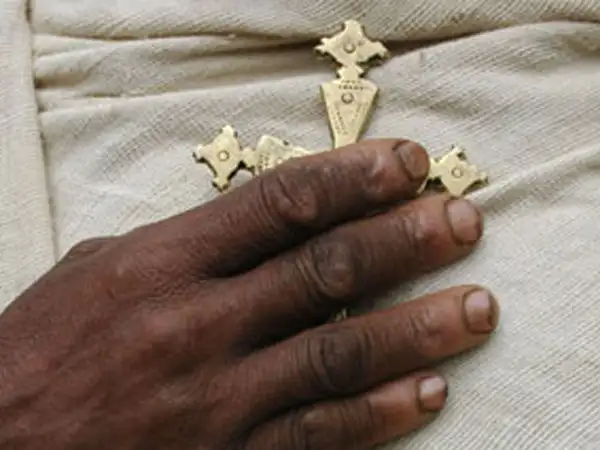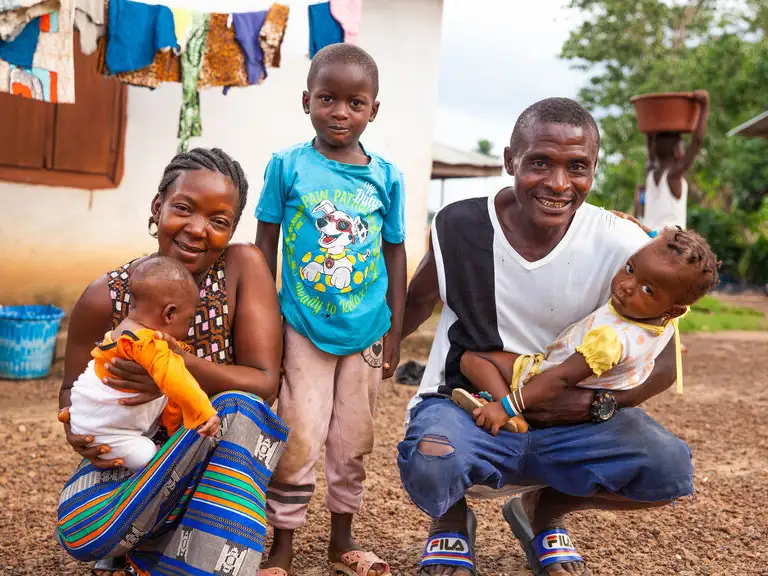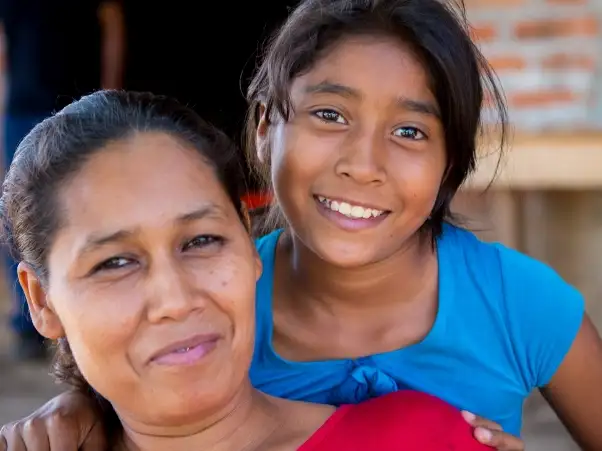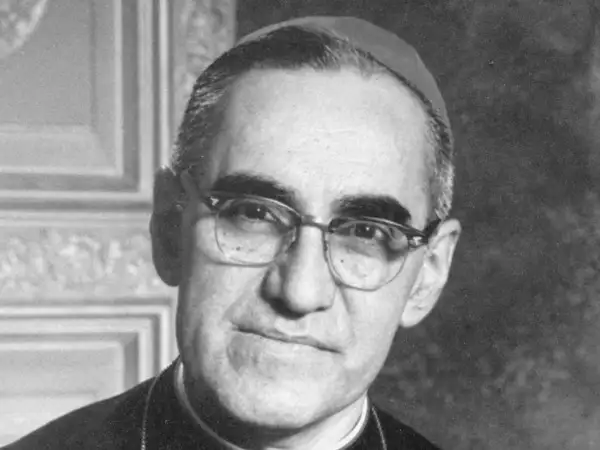Our Common Home is CAFOD’s strategic framework, offering a unifying vision to inspire us towards transformative change.

CAFOD’s values
At CAFOD, our mission is to work alongside the world’s poorest people. We work without prejudice, we don’t preach, and we pride ourselves on our diversity. We believe our Catholic values are best shown through our love for others, and by working for justice and an end to poverty.
CAFOD’s vision, mission and values draw directly from Catholic Social Teaching (CST), Scripture, Liturgy, the Gospel and the tradition of the Church. Catholic Social Teaching is at the heart of what we do and who we are.
Over the last five years at CAFOD we have been particularly inspired by Pope Francis' encyclical letter Laudato Si' and its call for us all to respond to both the cry of the earth and the cry of the poor.
We have looked again at what progress really means, in dialogue with partners from around the world. We know that everything is interconnected. We believe that we are called by our faith to stand alongside poor communities and care for God's creation. And our response is rooted in this belief. "Love, overflowing with small gestures of mutual care, is also civic and political, and it makes itself felt in every action that seeks to build a better world" (Laudato Si' 231).
As well as asking our supporters to donate and campaign, we place equal importance on prayer. Prayer informs and underpins our work. We provide prayers and reflections for our supporters and use prayer for our own guidance and inspiration.
Works of love directed to one’s neighbour are the most perfect external manifestation of the interior grace of the Spirit…
How does CAFOD work?
CAFOD is an integral part of the Catholic Church. Our supporters are mainly from the Catholic community and our mandate comes from the Bishops' Conference of England and Wales, but we welcome support from people of all faiths and none. We have a presence in each diocese of England and Wales, which work directly with the parish communities in their area.
The value of partnership, present throughout Catholic Social Teaching, is central to CAFOD’s work overseas. We rely on and empower local people who have technical expertise. Because they are part of their communities, they are best placed to respond to needs.
We are part of a Church network with a local presence in 165 countries and territories. As one of the largest aid networks in the world, we can help people in remote areas, in war zones and who are discriminated against. The Church often reaches the poorest people, in areas where social care and government structures aren’t so strong.
CAFOD and Catholic Social Teaching (CST)
Catholic Social Teaching is founded in scripture and includes statements and letters written by popes and bishops. It shows how Catholic faith can guide our responses to modern day issues.
Our world so often seems ruled by greed and corruption. But Catholic Social Teaching undermines self-interest.
Gaudium et Spes #69 states that “God intended the earth with everything contained in it for the use of all human beings and peoples… goods should be in abundance for all in like manner.” In even more strident terms, it reminds us to "Feed the man dying of hunger, because if you have not fed him, you have killed him". We have a clear duty actively to share resources and strive for justice for our brothers and sisters. Neutrality is not enough.
Pope Paul VI’s encyclical Populorum Progressio quotes St Ambrose: "You are not making a gift of what is yours to the poor man, but you are giving him back what is his...The earth belongs to everyone, not to the rich."
This vision is key to Catholic Social Teaching and to our work. Since we believe each person is made in the image and likeness of God and has inherent dignity, we work with those living in poverty to have access to food, water, housing and other basic amenities which many of us can often take for granted.
Saint Oscar Romero and CAFOD
Oscar Romero was Archbishop of San Salvador from 1977 until he was assassinated in 1980 for speaking out about human rights violation in his country. He was a peacemaker who sacrificed his life standing up to injustice.
In the 1970s, when Oscar Romero’s radio station was blown up in an attempt to stop him from speaking out about the atrocities occurring in his country, CAFOD provided funding to rebuild it. CAFOD also worked through our Church network helping thousands of people who had fled their homes because of the violence.
Following Romero’s martyrdom CAFOD staff managed to have Brixton street renamed as Romero Close and today CAFOD offices are located in ‘Romero House’. CAFOD staff, partners and supporters have also been at the forefront of the campaign to have Oscar Romero beatified.
Read more about some of the principles which inspire our work.
Find resources to reflect on and celebrate the life of Saint Oscar Romero, who was canonised on 14 October 2018




